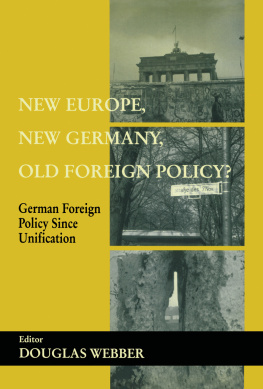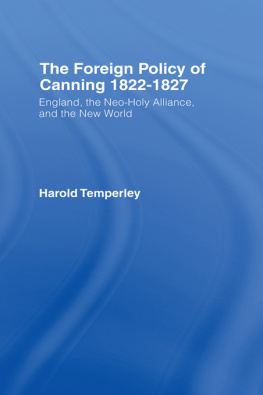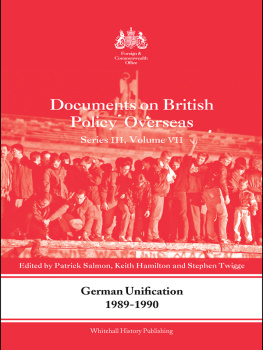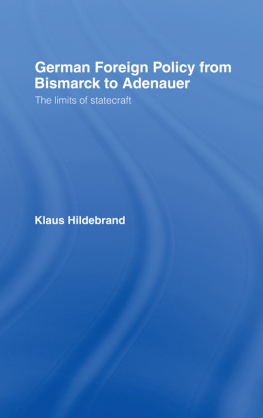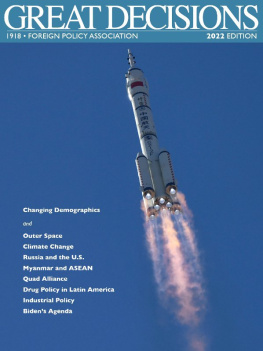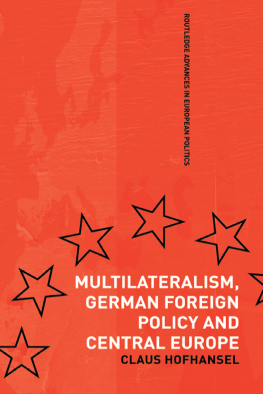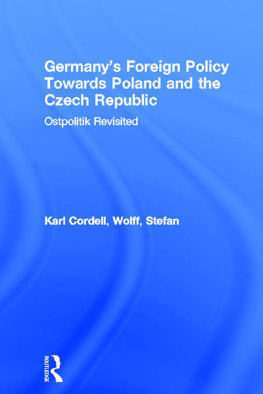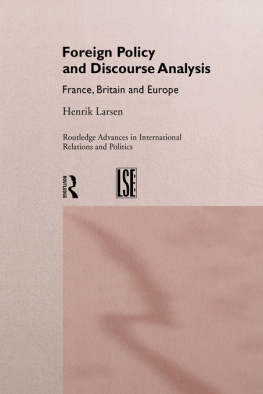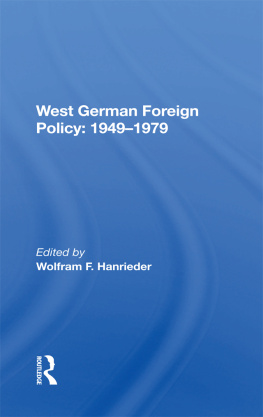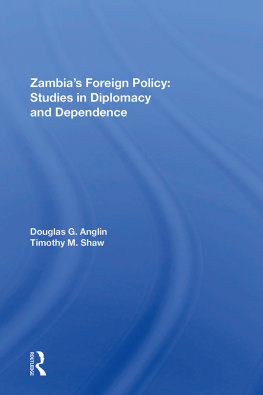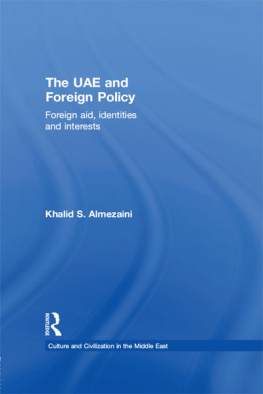Douglas Webber - New Europe, New Germany, Old Foreign Policy?: German Foreign Policy Since Unification
Here you can read online Douglas Webber - New Europe, New Germany, Old Foreign Policy?: German Foreign Policy Since Unification full text of the book (entire story) in english for free. Download pdf and epub, get meaning, cover and reviews about this ebook. year: 2001, publisher: Routledge, genre: Politics. Description of the work, (preface) as well as reviews are available. Best literature library LitArk.com created for fans of good reading and offers a wide selection of genres:
Romance novel
Science fiction
Adventure
Detective
Science
History
Home and family
Prose
Art
Politics
Computer
Non-fiction
Religion
Business
Children
Humor
Choose a favorite category and find really read worthwhile books. Enjoy immersion in the world of imagination, feel the emotions of the characters or learn something new for yourself, make an fascinating discovery.
- Book:New Europe, New Germany, Old Foreign Policy?: German Foreign Policy Since Unification
- Author:
- Publisher:Routledge
- Genre:
- Year:2001
- Rating:3 / 5
- Favourites:Add to favourites
- Your mark:
- 60
- 1
- 2
- 3
- 4
- 5
New Europe, New Germany, Old Foreign Policy?: German Foreign Policy Since Unification: summary, description and annotation
We offer to read an annotation, description, summary or preface (depends on what the author of the book "New Europe, New Germany, Old Foreign Policy?: German Foreign Policy Since Unification" wrote himself). If you haven't found the necessary information about the book — write in the comments, we will try to find it.
Douglas Webber: author's other books
Who wrote New Europe, New Germany, Old Foreign Policy?: German Foreign Policy Since Unification? Find out the surname, the name of the author of the book and a list of all author's works by series.
New Europe, New Germany, Old Foreign Policy?: German Foreign Policy Since Unification — read online for free the complete book (whole text) full work
Below is the text of the book, divided by pages. System saving the place of the last page read, allows you to conveniently read the book "New Europe, New Germany, Old Foreign Policy?: German Foreign Policy Since Unification" online for free, without having to search again every time where you left off. Put a bookmark, and you can go to the page where you finished reading at any time.
Font size:
Interval:
Bookmark:
Douglas Webber

FRANK CASS AND COMPANY LIMITED
711 Third Avenue, New York, NY 10017
New Europe, new Germany, old foreign policy?: German foreign policy since unification
1.Germany Foreign relations 1990
I.Webber, Douglas
327.43
New Europe, new Germany, old foreign policy?: German foreign policy since unification / editor, Douglas Webber.
p. cm
Includes bibliographical references and index.
ISBN 0-7146-5172-9 ISBN 0-7146-8185-7
1. GermanyForeign relations1990- relations1990-. 2. National securityGermany. 3. GermanyMilitary policy. 4. GermanyForeign relationsEurope. 5. EuropeForeign relationsGermany. I. Webber, Douglas.
DD290.3 .N48 2001
327.43dc21 2001028388
- It was not forged by blood and iron, but rather by a peaceful, democratic revolution;
- It was not a fait accompli, but rather was negotiated and agreed with the four Second World War allies (the US, the Soviet Union, France and Britain);
- It was not built on territorial conquest & acquisition, such that peaceful and stable relations with an important neighbouring state namely France were precluded, but rather renounced territorial claims on other states;
- It was not an authoritarian monarchy, but a democratic republic;
- It was not an unconstrained, autonomous actor in international affairs, but was tightly integrated into numerous alliances and regional and international organisations, such as the European Union (EU) and the NATO (North Atlantic Treaty Organisation).
Font size:
Interval:
Bookmark:
Similar books «New Europe, New Germany, Old Foreign Policy?: German Foreign Policy Since Unification»
Look at similar books to New Europe, New Germany, Old Foreign Policy?: German Foreign Policy Since Unification. We have selected literature similar in name and meaning in the hope of providing readers with more options to find new, interesting, not yet read works.
Discussion, reviews of the book New Europe, New Germany, Old Foreign Policy?: German Foreign Policy Since Unification and just readers' own opinions. Leave your comments, write what you think about the work, its meaning or the main characters. Specify what exactly you liked and what you didn't like, and why you think so.

